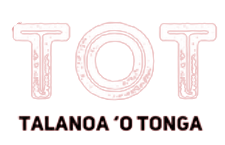Outlaw motorcycle gangs (OMCGs) are increasingly establishing a foothold in Pacific Island nations, including Tonga, contributing to a surge in drug-related crime according to a recent report by the United Nations Office on Drugs and Crime (UNODC).
The UNODC report, “Transnational Organized Crime in the Pacific: Expansion, Challenges and Impact”, identifies Tonga as one of several Pacific islands where OMCGs are expanding their operations. The country has become a key transit point for drug trafficking, with drugs frequently moved through Tonga to other Pacific nations such as Fiji. Methamphetamine, in particular, has become a significant issue in Tonga, with the drug’s use and trafficking rising sharply in recent years.
The report shows the growing presence of gangs such as the Hell’s Angels and their affiliates, like Eight Demons, in Tonga. These groups are playing a significant role in trafficking methamphetamine and other narcotics through the Pacific, raising concerns about public safety and law enforcement challenges.
Not long ago in August, Tongan authorities made a breakthrough in their fight against drug trafficking, arresting 17 individuals in connection with methamphetamine smuggling. Among those arrested were a customs officer and a prominent businessman, highlighting the reach of criminal networks within Tonga’s institutions.
The operation also led to the seizure of 6.1 kilograms of methamphetamine linked to drug traffickers from the United States. Investigators found items branded with the logo of the Comanchero Outlaw Motorcycle Gang, an Australian-based OMCG known for its involvement in drug trafficking across the Pacific.
Tonga’s geographical location has made it an attractive target for organized crime groups. The Pacific’s vast maritime routes and relatively porous borders allow for easy movement of narcotics. Traffickers often use yachts and small vessels to move methamphetamine and other drugs between Tonga and neighboring countries, such as Fiji, which has become a regional hub for drug trafficking. This sophisticated operation allows OMCGs to remain under the radar while moving large quantities of drugs to markets in Australia and New Zealand, where demand is high.
The consequences of the drug trade are being felt across Tonga, with methamphetamine use becoming more widespread. Local law enforcement and health officials have reported a rise in mental health issues linked to methamphetamine use, which has put additional strain on Tonga’s already limited public healthcare resources. The increasing availability of the drug has also contributed to a rise in related crimes, including theft and violence, as users seek to fund their addictions.
Despite these challenges, Tonga’s law enforcement agencies are stepping up efforts to battle organized crime. Recent raids and arrests signal the government’s commitment to cracking down on OMCGs and drug traffickers.
However, the scale of the problem means that Tonga cannot tackle it alone. Regional cooperation with neighboring Pacific countries, as well as support from international partners like Australia, New Zealand, and the United States, will be key in addressing the growing influence of OMCGs and the broader issue of transnational crime.
The UNODC report also points out that OMCGs are exploiting other vulnerabilities in Pacific nations, including weaknesses in law enforcement and regulatory frameworks, to expand their operations. In addition to drug trafficking, these gangs are involved in other illicit activities such as cyber-enabled crime and illegal gambling. Their ability to infiltrate local economies and recruit members in the Pacific, particularly in countries like Fiji, calls for the urgent need for stronger regulations and more robust law enforcement capabilities.
As Tonga and other Pacific nations grapple with the rising influence of OMCGs, it is clear that addressing these challenges will require a coordinated and sustained effort. The impact of drug trafficking on public health, crime rates, and governance is profound, and failure to act decisively could further destabilize the region if not Tonga.




